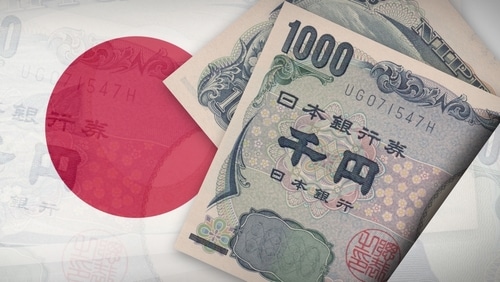The Japanese stock market crash of August 2024, triggered by the Bank of Japan’s (BOJ) surprise interest rate hike in July, has left many wondering about the future of Japanese equities. But amid the uncertainty, a growing chorus of voices is advocating for a long-term perspective.
As the country emerges from decades of economic stagnation, investors and analysts are grappling with a crucial question: How can long-term growth potential be reconciled with short-term market volatility? Against this backdrop, EquitiesFirst’s equity-backed financing has emerged as a potential tool for Japanese businesses and shareholders.
The market shock and broader economic context
Japan’s economic resurgence has been marked by several promising indicators. Wage growth has exceeded 5% annually, unemployment has hit record lows, and consumer spending is on an upward trajectory. These positive trends have translated into improved corporate performance, with many Japanese companies reporting robust earnings and increased shareholder returns.
“The long-term underlying fundamentals remain fair,” Wilfred Sit, director and chief investment officer at Hang Seng Investment Management, told Japan Times. “Looking into next year, the Japanese economy can show more signs of a gradual recovery.”
However, the path to sustained growth is rarely smooth, as evidenced by the recent market shock. When the Bank of Japan unexpectedly raised interest rates on July 31, it sent shock waves through the financial system. The decision exposed the massive scale of the yen carry trade and triggered a series of dramatic market movements.
For decades, Japan’s ultra-low interest rates made the yen an attractive funding currency for carry trades. Investors would borrow yen cheaply, convert it to other currencies, and invest in higher-yielding assets abroad. As long as the yen didn’t appreciate significantly, investors could profit from the interest rate spread.
However, the BOJ’s unexpected rate hike in July dramatically altered this equation. As interest rates in Japan rose, the cost of funding for carry trades increased. Simultaneously, the prospect of higher rates in Japan made the yen more attractive, leading to its appreciation against other currencies.
This combination — higher borrowing costs and a strengthening yen — put enormous pressure on carry trade positions. Investors who had borrowed in yen to invest elsewhere suddenly faced the prospect of their funding costs rising and the value of their yen-denominated debts increasing as the currency appreciated.
On August 2, the Nikkei Stock Average posted its second-largest daily sell-off. Just days later, on August 5, it recorded its largest-ever single-day drop, surpassing even the infamous “Black Monday” crash of 1987. But in a dramatic reversal, August 6 saw the Nikkei experience its biggest one-day gain since 2008.
Long-term potential and short-term volatility
This period of extreme volatility revealed a gap between short-term speculators and those with longer positions. Margin trading, which typically accounts for about 70% of retail trading value in Japan, shrank by approximately 20% in the week ending August 9.
On the other hand, domestic institutional investors seized the opportunity, purchasing 794.2 billion yen (about $5.5 billion) of Japanese stocks at bargain prices in that same week. Foreign investors also showed confidence, making net purchases of 495.4 billion yen.
It’s in this context of long-term potential and short-term volatility that EquitiesFirst financing could garner attention. As a financial tool that allows investors to use their equity holdings to finance access to capital, it offers a potential means of maintaining long-term positions while addressing short-term liquidity needs.
Japan continues to transition from a bank-dominated financial system to a more diverse capital market, and tools that enhance liquidity and flexibility could be key to attracting and retaining long-term investors.
This is particularly relevant, given Japan’s ongoing efforts to reform its corporate governance and capital allocation practices. Many companies are adopting more shareholder-friendly policies, increasing dividends and share buybacks. The government has also introduced initiatives like the Nippon individual savings accounts to encourage more retail investment in equities.
In a recent Morgan Stanley report, more than half of Japanese companies surveyed indicated plans to increase dividends this year, well above the long-term average. Share buybacks are running at roughly four times the average of the last decade. These trends suggest a fundamental shift in how Japanese companies approach capital management and shareholder returns.
As Japan looks to the future, the interplay between long-term economic trends, short-term market dynamics, and financial tools like EquitiesFirst financing could shape the trajectory of its stock market.
Yue Bamba, head of active investments for Japan at BlackRock, offers an encouraging perspective: “The recent volatility doesn’t seem to have deterred long-term global investors, to the extent that it has cleaned up the positions among the fast [money] community,” he told Nikkei. Long-term investors are still doing their due diligence and starting to gradually include the asset class in their portfolios.”


